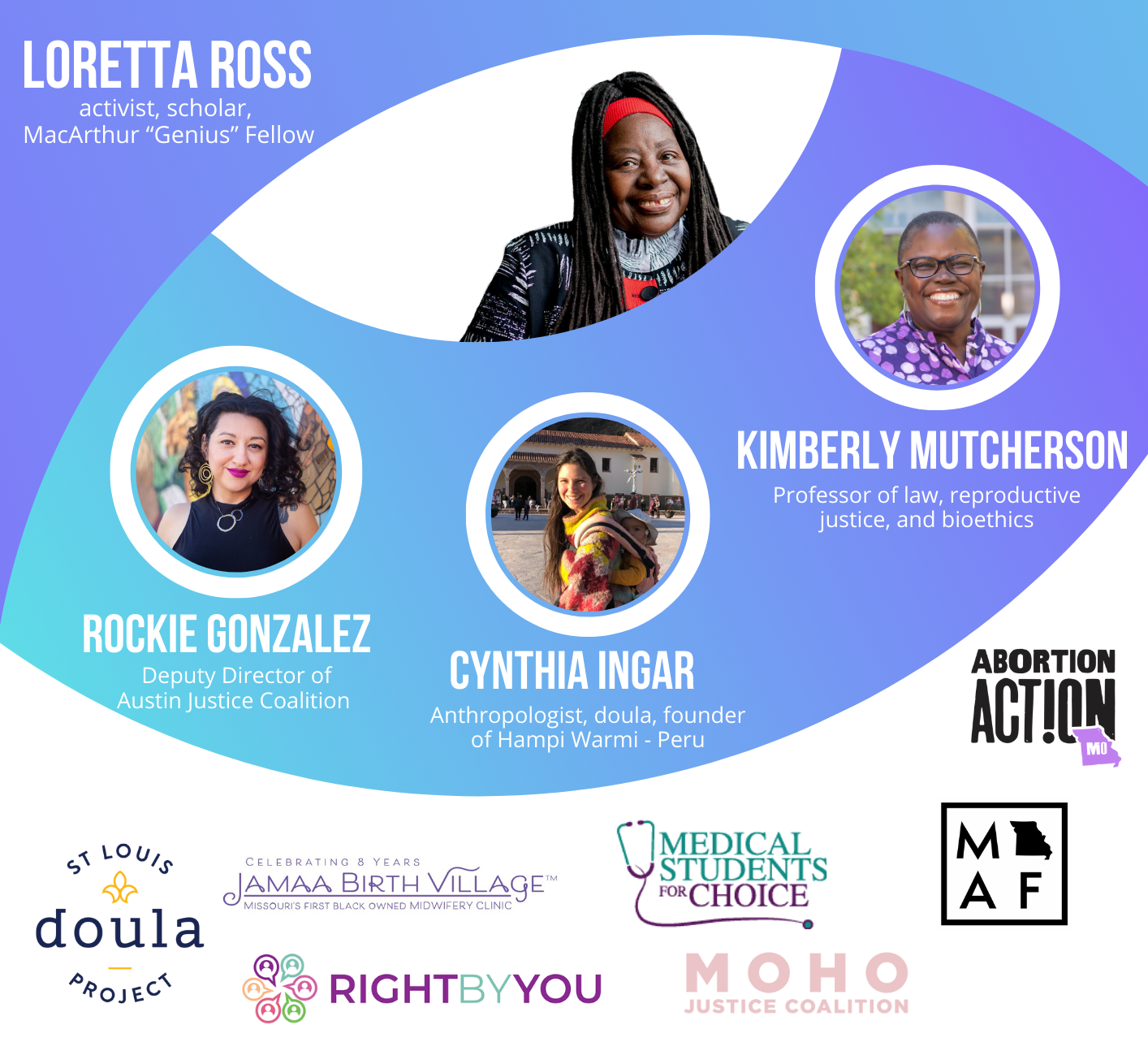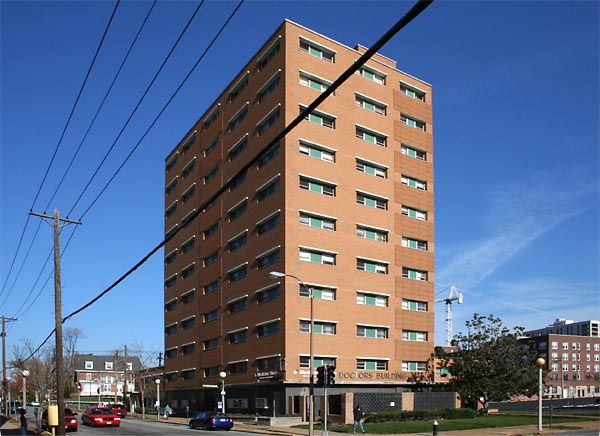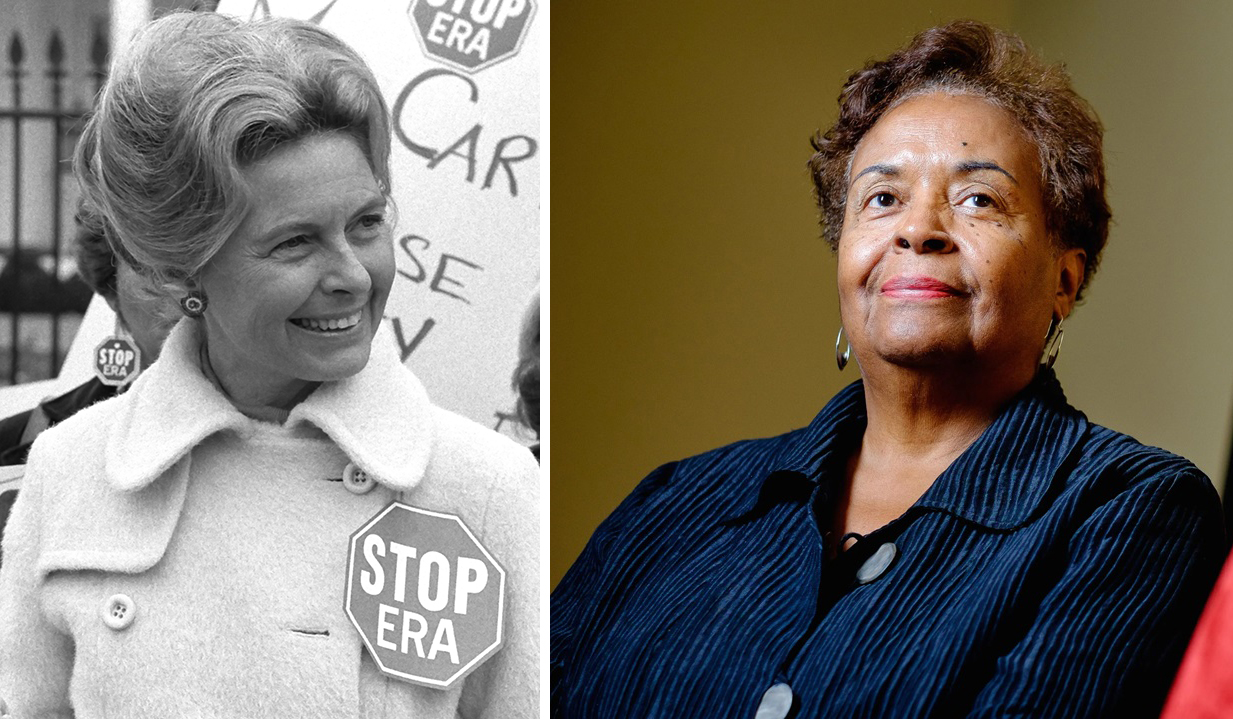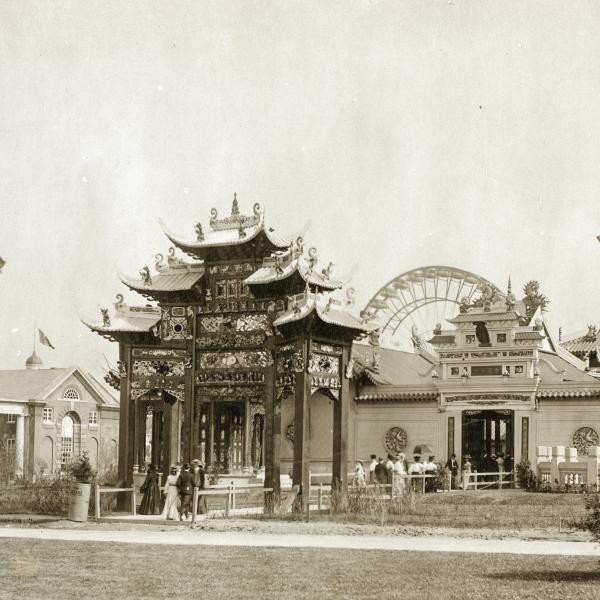Ri’enna Boyd is a PhD student in Public Health Sciences studying social support and alternative forms of reproductive care for Black women. Katherine Tilghman is a PhD candidate in Hispanic Studies researching connections between contemporary Latin American fiction and feminism.

Reflecting on Reproductive Justice: A Public Symposium on Global and Local Advocacy
September 5–7
Free • Open to all
Free public screening of the documentary Aftershock
Lecture: “Reproductive Justice Beyond Abortion: Potential Life as a Tool of Subordination”
Conversation 1: Engaging with Rights Not to Have Children
Conversation 2: Engaging with Rights to Have Children and Form Families
Conversation 3: Engaging with Rights to Parent Across Movements
Conversation 4: The Future of Reproductive Justice with Loretta Ross
Click on the link above for full schedule
Reproductive rights are under attack in Missouri. This was the sentiment on many Missourians’ lips, and echoing across the country, when Missouri became one of the first states to ban elective abortions immediately following the Supreme Court’s 2022 decision in Dobbs v. Jackson Women’s Health Organization. But as reproductive justice researchers at WashU and beyond know, this was not the first time Missouri has been home to fierce conflicts over reproductive autonomy. These conversations stem from the state’s first abortion ban enacted in 1825, initially intended to prevent the use of poison to induce abortions.
In 1835, abortion became illegal across the state regardless of the method, except to save the life of the mother. This ban remained until the Supreme Court decision of Roe v. Wade in 1973, preventing Missouri from regulating first-trimester abortions. Shortly after Roe, Judith Widdicombe opened Reproductive Health Services, the state’s first legal abortion clinic. Missouri lawmakers, however, pushed back with restrictive measures like requiring a husband’s permission for a woman to obtain an abortion. Missouri’s attorney general at the time, John C. Danforth (brother of William Danforth, for whom WashU’s main campus is named), argued for these restrictions before the Supreme Court, which ruled them unconstitutional in 1976.

By 1989, the tide turned in Missouri’s anti-abortion lawmakers’ favor, when the Supreme Court upheld the state’s prohibitions on using public facilities for abortions. Since this ruling, Missouri has stood firmly in its determination to prevent abortions, at all costs — literally. In 2019, Governor Mike Parson signed a law banning abortions after eight weeks, including a trigger ban to outlaw abortions entirely if Roe v. Wade were overturned. This same bill incentivized donations to crisis pregnancy centers, or unregulated, unlicensed “clinics” that mislead pregnant people to prevent abortions. Since 2010, Missouri has issued nearly $45 million to these centers.
Missouri’s long and fraught history of reproductive justice has always been embedded with racial and class dynamics. The abortion ban is no exception, as it is expected to disproportionately affect Black and lower-income communities. Additionally, a look into the chilling history of eugenics (belief in “perfecting” the human species through controlled breeding) in the United States brings us to the figure of Harry H. Laughlin, a graduate and later faculty member of what is now Truman State University. Laughlin was a prominent eugenicist and proponent of compulsory sterilization against communities deemed degenerate and unfit to reproduce, most often due to associations with their class, race or disability.
Missouri was also home to the downtown uranium processing facility of Mallinckrodt Chemical Works (another familiar name for the WashU community), which dumped radioactive waste in the predominantly Black and lower-income Coldwater Creek area of North St. Louis as it refined uranium for the Manhattan Project. This contamination led to chronic health conditions among residents, including cancer and birth defects. The advocacy group Just Moms STL, highlighted in Rebecca Cammisa’s documentary Atomic Homefront, continues to fight for justice for affected families. In short, Missouri’s abortion ban is the latest installment in a centuries-long assault on reproductive health, rights and justice, from which its academic institutions are rarely far removed.

But Missourians have not suffered these attacks in silence; here in St. Louis, we can find many organizations dedicated to helping people take control over their own reproductive health. What is the role of a university like WashU in this conversation—an institution that has often existed in tension or in asymmetrical power relationships with the communities in which it has established itself? How can academics work to open spaces for dialogues with, not just about, those doing the hard political and medical work to keep Missourians in control of their reproductive futures? Many of the organizations on the front lines of this battle over reproductive rights will participate in the Reflecting on Reproductive Justice symposium at WashU, where they will have the opportunity to collaborate with other organizations in the area, potentially sparking new approaches to reproductive justice in St. Louis. These wide-ranging organizations address abortion access, like the Missouri Abortion Fund, Abortion Action Missouri, Medical Students for Choice; unplanned pregnancy, like Right By You; and perinatal health and agency in general, like Jamaa Birth Village and the St. Louis Doula Project.
There are, of course, researchers at WashU who have dedicated their work to many facets of reproductive justice, in many cases alongside the organizations mentioned above. But in order to build a broad, cohesive effort challenging the state’s overwhelming restrictions on reproductive rights, this exchange between researchers, practitioners and organizations needs to grow beyond these hardworking individual scholars. WashU needs to open its doors to the St. Louis community, to offer its campus as a forum where academics and advocates with diverse ways of approaching reproductive justice can engage in intellectual and strategic dialogue around these issues that are a matter of life and death for so many Missourians.




